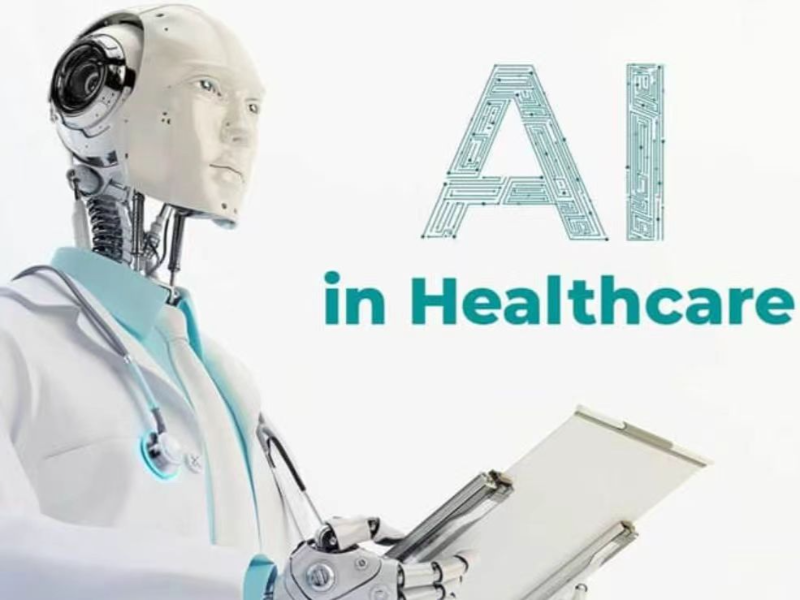- AI can improve the accuracy of diagnosis, drastically reduce the time needed for doctors to analyse images, and speed up the speed at which patients receive treatment.
- AI can process and analyse a large amount of genetic information, living habits and environmental factors, assisting doctors in formulating individually tailored treatment plans. AI can significantly reduce the time and cost of bringing new drugs to market and simulate clinical trials.
- AI can algorithmically optimise the use plan of operating theatres and medical equipment, optimise the allocation of hospital resources, reduce the idle time of equipment, and improve the efficiency of use.
Artificial Intelligence (AI) has not only greatly improved the quality and efficiency of healthcare services, but has also driven innovation and change in the healthcare industry.
Diagnostic support
Through deep learning and image recognition technology, AI can help doctors analyse medical images such as X-rays and CT scans.AI algorithms can identify abnormal patterns in lung X-rays to assist doctors in diagnosing pneumonia or lung cancer. This technology not only improves diagnostic accuracy but also shortens waiting times, allowing patients to receive faster treatment.
AI can also play an important role in the field of pathology. By analysing images of tissue samples, AI systems can help pathologists identify cancer cells and improve the early detection rate of cancer. This technology is particularly good at early diagnosis of breast and skin cancers, enhancing the accuracy of the diagnosis by providing a second opinion.
Also read: How will AI affect different industries?
Personalised medicine
Personalised medicine is another important application of AI in healthcare. By analysing large amounts of genetic data, lifestyle and environmental factors, AI can help doctors develop personalised treatment plans for each patient.
AI can predict and prevent the recurrence and deterioration of chronic diseases through continuous monitoring of a patient’s health status. For example, AI can help diabetic patients monitor their blood glucose levels, predict the risk of elevated blood glucose, and provide advice on diet and exercise.
Operational efficiency improvement
AI technology can also play an important role in improving the operational efficiency of healthcare organisations. AI can optimise the allocation of resources in hospitals, such as automating the scheduling of operating theatres and medical equipment, to improve the efficiency of their use.
Through AI systems, hospitals can optimise the patient appointment process, reduce waiting time and non-attendance rates, and improve patient satisfaction and service quality.
AI also shows great potential in medical record management. Through natural language processing technology, AI can automate the writing and organising of medical documents, reducing the administrative burden on doctors and enabling them to focus more on the clinical treatment of patients.
Also read: How is digital transformation changing the healthcare industry?
Drug research and development
AI can significantly shorten the time and cost of bringing new drugs to market. AI can predict the pharmacological properties of compounds at an early stage, helping scientists screen out promising drug candidates and reduce the failure rate of late-stage clinical trials.
By simulating the human body’s response to drugs, AI can predict the effects and side effects of drugs at the experimental stage, providing a scientific basis for clinical trials.

